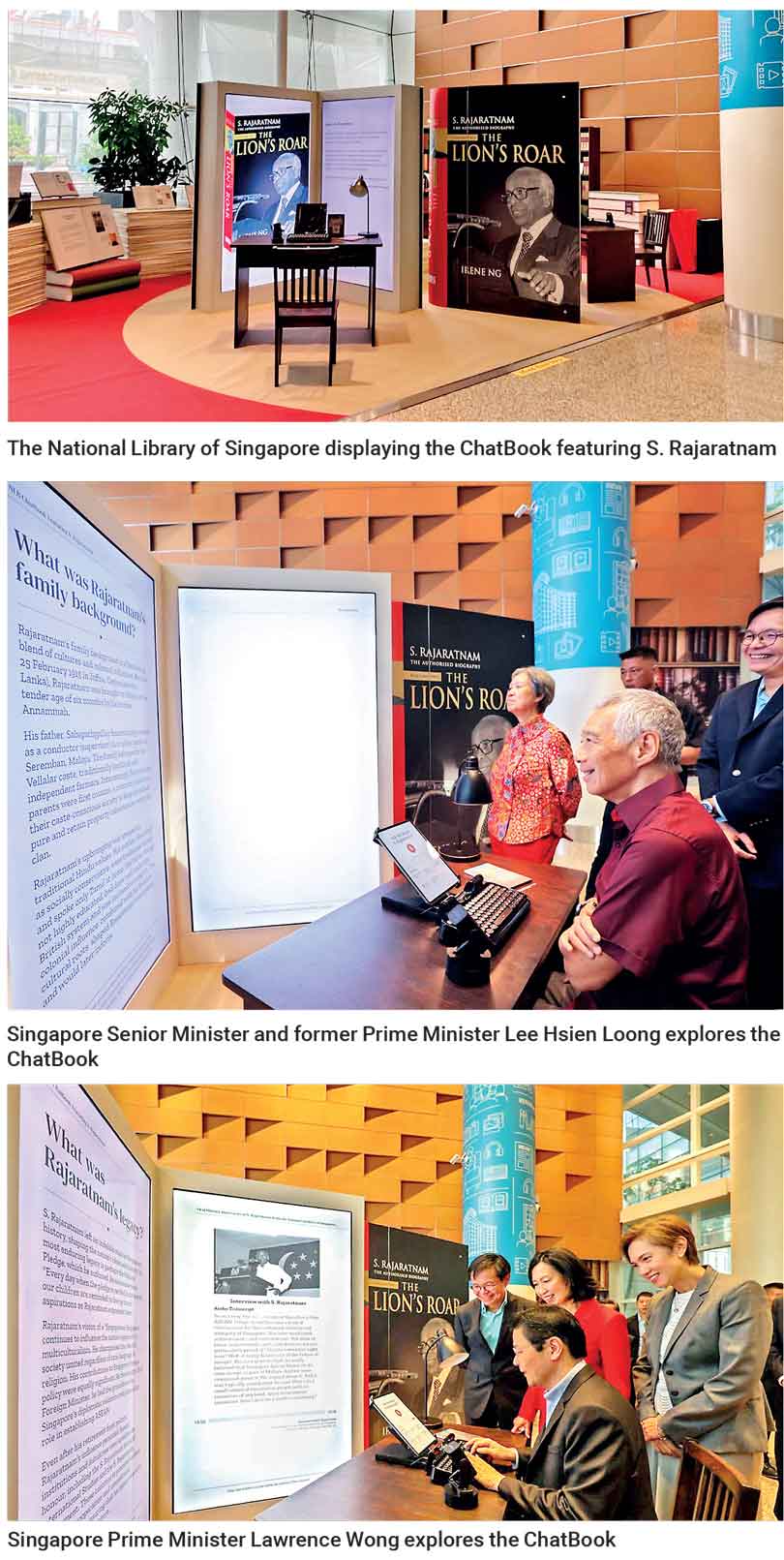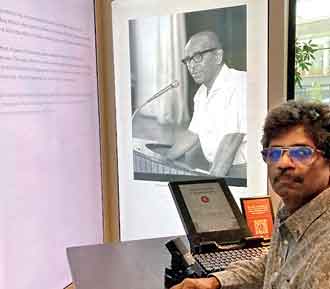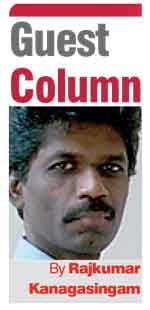Generative AI-powered ChatBook featuring S. Rajaratnam, one of Singapore’s Founding Fathers
Tuesday, 26 November 2024 01:51 – – 46


 During the Singapore FinTech Festival, I had a chance to visit the National Library of Singapore and explore the Generative AI-powered ChatBook featuring one of the founders of modern Singapore S. Rajaratnam.
During the Singapore FinTech Festival, I had a chance to visit the National Library of Singapore and explore the Generative AI-powered ChatBook featuring one of the founders of modern Singapore S. Rajaratnam.
The showcase was inaugurated by Prime Minister of Singapore Lawrence Wong while launching the second volume of the biography of S. Rajaratnam, “The Lion’s Roar”, authored by Irene Ng.
Singapore’s Senior Minister and former Prime Minister Lee Hsien Loong, who graced the showcase, noted: “Raja belonged to the core group of Founding Fathers who shared fierce conviction of what Singapore should be, and defied the odds to build a united, successful, and confident nation. It is befitting that NLB has made this ChatBook prototype publicly available with Raja’s materials.”
Rajaratnam was born on 25 February 1915 in Jaffna, Ceylon, and at the age of six months, his mother brought him to join his father in Malaya. His mother had taken the precaution of giving birth to him in her hometown Jaffna because of her traumatic experience at a hospital in Malaya a few years earlier.
Rajaratnam spent his childhood in Malaya and later went to London to study at King’s College but had to return to Malaya before  completing his studies due to World War II.
completing his studies due to World War II.
Eventually, he settled in Singapore, where he became a prominent journalist, political leader, and one of the Founding Fathers of independent Singapore.
Rajaratnam was close to Lee Kuan Yew, and they shared a strong working relationship as part of Singapore’s founding leadership. Both were core members of the People’s Action Party (PAP) and worked together to guide Singapore through its early years of independence. Rajaratnam served as Singapore’s first Foreign Minister, while Lee was the first Prime Minister, and their shared vision for the country’s future helped them build a solid and effective partnership.
As the Foreign Minister, Rajaratnam was skilled in diplomacy and worked to establish Singapore’s presence on the global stage, especially during a time when Singapore was a small, newly independent country. He advocated for principles of non-alignment, peaceful coexistence, and cooperation, which allowed Singapore to build strong relationships with both Eastern and Western nations.
His influence also extended domestically. He played a key role in promoting multiculturalism and social cohesion, particularly through the drafting of the Singapore National Pledge, which emphasised unity across racial and religious lines. His ideals of harmony, meritocracy, and national unity continue to shape Singapore’s identity today.
Rajaratnam’s contributions to the nation’s broader development had a significant impact on Singapore’s emergence as a global financial hub.
As Foreign Minister, he played a key role in shaping Singapore’s international image and establishing diplomatic ties with countries and organisations that would later facilitate global trade and investment.
His efforts in building strong foreign relations and advocating for Singapore’s strategic location as a neutral and stable nation created an environment conducive to economic growth, including in the financial sector.
Additionally, Rajaratnam’s emphasis on national stability, meritocracy, and social cohesion helped to create the social and political foundation that made the country an attractive destination for global businesses and investors.
Singapore’s reputation as a stable, efficient, and transparent country, with policies that encouraged foreign investment, was crucial to its success as a powerful financial hub in the world today.
(The writer is the Founding President of Fintech Association of Sri Lanka and a relative of Late S. Rajaratnam)





